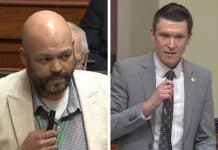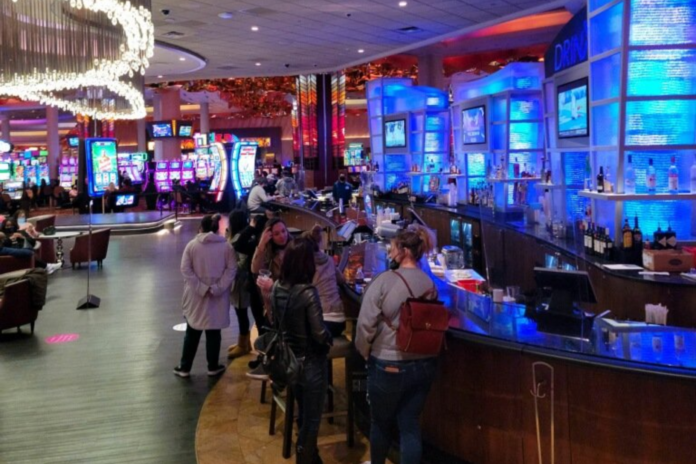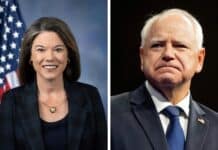Casinos, bars, and restaurants on Native American tribal lands in Minnesota have remained open throughout the COVID-19 emergency, despite restaurants and bars being forced to shut down everywhere else in the state.
Establishments on reservations have advertised buffets and free shuttles, encouraging patrons to visit for in-person meals.
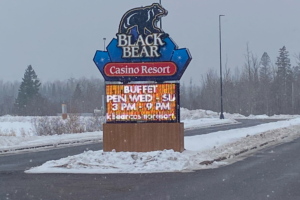
Bars and restaurants were closed from Nov. 20 to Jan. 10 under an executive order issued by Gov. Tim Walz, but casinos were packed with customers who didn’t always wear masks and disregarded social-distancing requirements, according to pictures from earlier this month.
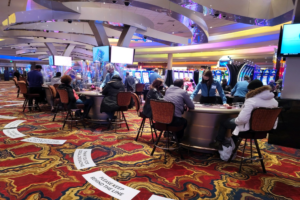
Mystic Lake Casino Hotel invited Minnesotans to dine at its steakhouse on Thanksgiving. At the time, Minnesotans were prohibited from holding private gatherings with members of other households.
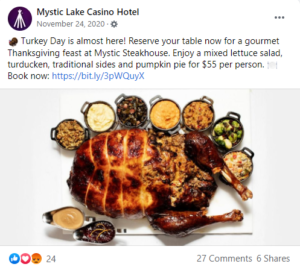
On the flipside, Ramsey County District Court found Larvita McFarquhar, a small business owner who defied the governor’s executive orders on in-person dining, in contempt of court, fining her $250 for each day she remained open.
In the lawsuit involving McFarquhar, attorney Nathan Hansen accused Walz of violating McFarquhar’s 14th Amendment rights.
The 14th Amendment guarantees equal protection under the law. Hansen argued that the governor’s executive order infringed upon that right when bars and restaurants on tribal lands remained open while establishments elsewhere in the state were ordered to move to take-out only.
Larvita has made this decision to not comply with the Court's order as an act of civil disobedience, as she believes it is unfair that bars and restaurants are open on Indian reservations while she is required to remain closed for inside service.
— Nathan M. Hansen (@nathanmhansen) December 17, 2020
McFarquhar decided to not comply with that order as “an act of civil disobedience” because it was “unfair that bars and restaurants [were] open on Indian reservations while she [was] required to remain closed for inside service.”
Hansen also argued that Public Law 280 — which he said grants the state power to prosecute crimes that occur on tribal lands — provides the state with the authority to shut down restaurants and bars on reservations.
A Minnesota statute on peacetime emergencies states that the governor has the authority to act without consulting tribes during a declared emergency.
Minn. Statute on point on ability of @GovTimWalz to shut down tribal restaurants and bars. Also see 25 usc 231 https://t.co/8iiwBUoYNt pic.twitter.com/2xEuFV2Dkq
— Nathan M. Hansen (@nathanmhansen) December 29, 2020
“If this is the crisis that they say it is,” then the state should have shut down bars and restaurants on tribal lands, Hansen said during one of McFarquhar’s court hearings.
“This is shocking to me that the government has the ability to shut these down but won’t,” he added.
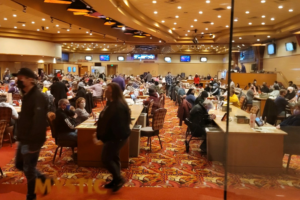
However, Judge Sara Grewing found that “there is no basis for this Court to conclude that the Governor of Minnesota has the authority to regulate the business activity of a separate sovereign nation that is entitled to self-determination under federal law.”
2018 Donations
In 2018, the year he was elected, Gov. Walz received a total of $15,500 from various Native American tribes across Minnesota, according to public records filed with the Minnesota Campaign Finance Board.
The Bois Forte Band of Chippewa owns Fortune Bay Resort Casino, The Wilderness Golf Course, Powerain Manufacturing Inc., The Y-Store, and Bois Forte Wild Rice. They donated $2,000 in October 2018.
The Fond du Lac Tribe, owners of the Black Bear Casino Resort and Fond du Luth Casino, donated $2,000 in September 2018.
The Mah Mah Wi No Min Fund is a fund established by the Mille Lacs Band of Ojibwe. The tribe owns Grand Casino Mille Lacs and Grand Casino Hinckley. They donated $2,000 in May and $2,000 in July, totaling $4,000 for 2018.
The Prairie Island Indian Community, owners of Treasure Island Resort and Casino, made multiple donations in 2018. Their payments throughout the year totaled $3,500.
The Shakopee Mdewakanton Sioux Community, owners of Mystic Lake Casino Hotel, donated $4,000 to Walz in May 2018.
The Minnesota Democratic-Farmer-Labor (DFL) Party also received a significant amount of money from a Minnesota tribe in 2018.
Over the course of the year, the DFL received a total of $130,000 from the Shakopee Mdewakanton Sioux Community.
2019 Donations
In 2019, an election off-year, the DFL received a total of $64,500 in donations from Native American tribes.
The Shakopee Mdewakanton Sioux donated $55,000, the Prairie Island Indian Community donated $1,000, and the Mah Mah Wi No Min Fund donated $8,500 in 2019.
2020 Donations
In 2020, the DFL again received donations from tribal nations in Minnesota. Prairie Island Indian Community donated $25,000 to the DFL in October 2020.
The Shakopee Mdewakanton Sioux donated $30,000 in October 2020, bringing the total amount of money received from Native American tribes to $55,000.
Gov. Walz was asked during a December press conference if he had put any pressure on casinos to close, but didn’t directly answer the question.
“Well, there’s a lot of conversations on this. I think, again, going back to the beginning, there is no perfect piece to this. With the lack of a federal plan, we follow CDC guidance, White House task force guidance. We follow the guidance of our internal experts and those externally,” said Walz, who then passed the microphone off to Department of Employment and Economic Development Commissioner Steve Grove.
“We respect the sovereignty of tribes to make those decisions, and that’s why we leave that to those leaders and those governments,” said Grove.
According to the Department of Health, Minnesota’s Native American community accounts for 4,242 COVID-19 cases and 72 deaths. Native Americans are 4 times more likely to be hospitalized and 2.6 times more likely to die of COVID-19 than white people, the CDC reports.
– – –
Rose Williams contributed to this report.



